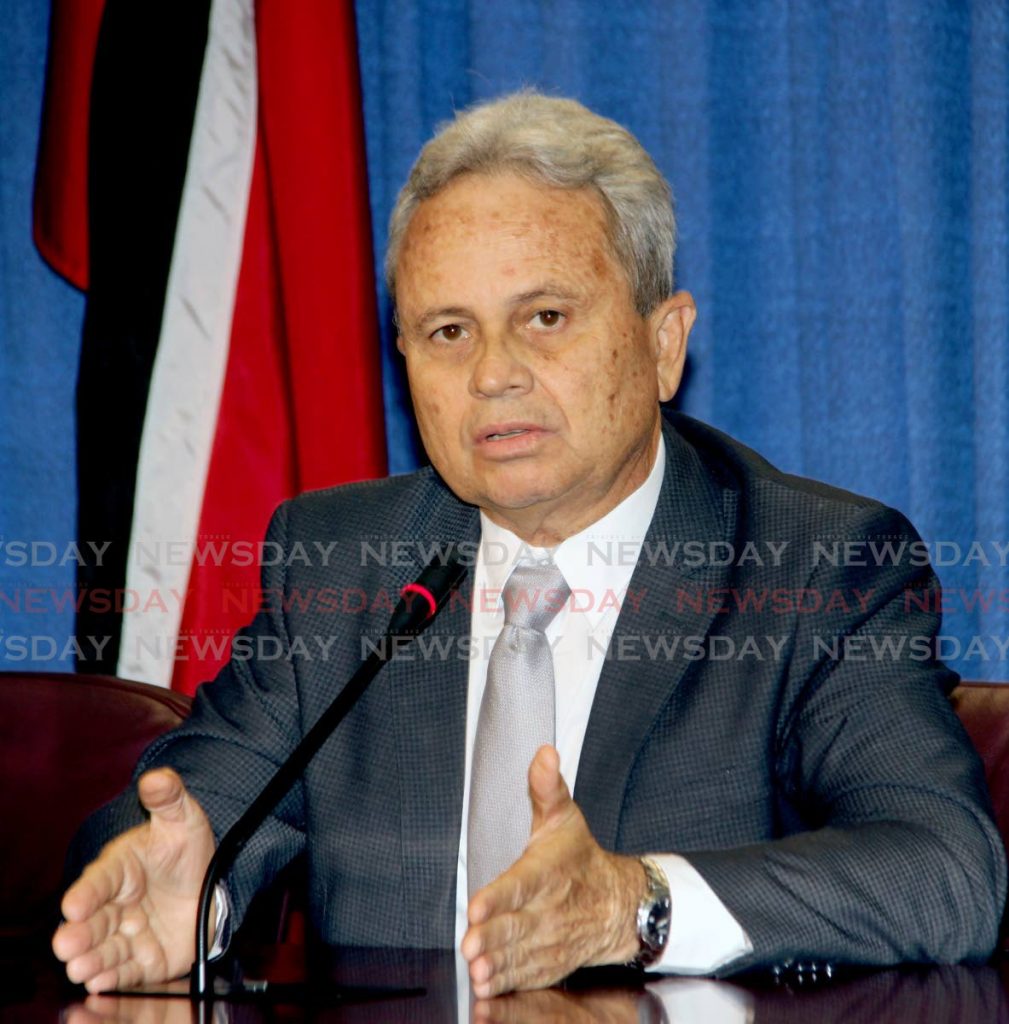Gov’t unveils covid19 economic plan

Rolling back the Central Bank’s repo rate and reserve requirement for commercial banks is the State’s first step in a plan designed to cushion the impact of its coronavirus precautions on the economy.
From there, businesses, including commercial banks and other financial institutions, hotels and manufacturers, will benefit from policies that will eventually be passed on to the entire population. The aim, Finance Minister Colm Imbert said in a special post-Cabinet media briefing Wednesday at the Diplomatic Centre, will assist affected individuals and businesses in coping with the financial difficulties caused by the covid19 pandemic.
Imbert is part of a Cabinet sub-committee, chaired by the Prime Minister, on the banking, finance and insurance industry. Both he and Rowley outlined the plan to the population. The Central Bank on Tuesday announced the adjustment to the repo rate, bringing it down to 3.5 per cent and lowered the reserve requirement for banking deposits. These measures will have a direct impact on liquidity and lending rates. The immediate impact would be an additional $2.6 billion in the money supply. Banks have also agreed to immediately lower the prime lending rate by the same amount that the repo rate has been reduced, about 30 per cent. The current prime lending rate – the base rate that banks use to lend to customers – is 9.25 per cent. Banks will reduce that by 1.5 per cent to 7.75 per cent and discussions are ongoing to get that down to six per cent and to reduce the interest rate spread between deposits and lending rates.
In a release Wednesday, Imbert elaborated on other measures including lower interest rates on credit cards by amounts ranging from 10 per cent to 17 per cent of the existing rates, on a bank by bank basis. First Citizens Bank, for example, has agreed to reduce its credit card interest rate from 24 per cent to 20 per cent and Republic Bank will reduce its interest rate from 24 per cent to 21 per cent. Banks have also been requested to make further reductions in credit card interest rates for small businesses and affected individuals. The government has also asked banks to consider deferring payments for mortgages, loans and other debt, as well as waive penalties for at least a month.
The government also appealed to businesses, via the TT Chamber of Industry and Commerce and TT Manufacturers’ Association, to hold off on job cuts over at least the next four weeks. These associations have agreed to encourage their members; in exchange, the government has agreed to expedite payments owed by the government to the private sector, including VAT refunds, income tax refunds and overdue accounts for services. These accelerated payments will be made within the next 30 to 60 days. Special attention will be paid to small and medium-sized businesses.
The government also announced that state entities the Trinidad and Tobago Mortgage Finance Company (TTMF) and the Housing Development Corporation (HDC) will be asked to provide an appropriate moratorium to customers who experience difficulty during this period in meeting their monthly commitments, including rent and mortgage payments. The deferrals will be for the month of April into May, and depending on the situation can be revised.
The major moneylenders in the country, such as Island Finance and Unicomer, will be asked to make similar reductions in interest rates and to provide appropriate moratoriums on instalment loans or hire-purchase agreements. For credit unions, which have a 100,000-strong membership, the Government will institute a liquidity support loan programme to provide liquidity support to individuals and small businesses who qualify for credit union loans.


Comments
"Gov’t unveils covid19 economic plan"